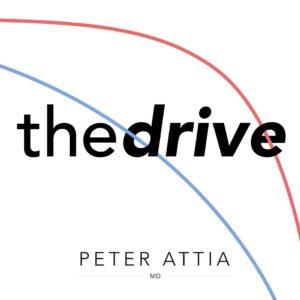
In this episode of “The Peter Attia Drive”, the focus is on GLP1 Agonists and Metformin. Peter Attia discusses the pros and cons of these weight loss drugs and explores the potential of Metformin as a geroprotective agent. He delves into their clinical applications, marketing strategies, and the latest insights and studies surrounding these medications.
GLP1 Agonists, originally developed to manage type 2 diabetes, have emerged as effective weight loss drugs. These medications stimulate insulin release and reduce appetite, leading to improved glycemic control and significant weight loss. Semaglutide and Treszapetide, both GLP-1 agonists, have shown promising results in clinical trials. Treszapetide, a dual agonist of GIP and GLP-1, exhibits potent weight loss effects. The availability of these drugs provides new possibilities for individuals struggling with obesity and associated health conditions.
Metformin, a widely used medication for diabetes management, has piqued interest as a potential geroprotective agent. Studies have indicated that Metformin may improve health outcomes and longevity, even in non-diabetic individuals. However, concerns about its effectiveness remain, and ongoing research aims to address these uncertainties. Other geroprotective drugs, such as SGLT2 inhibitors and rapamycin, offer promising avenues for extending both lifespan and health span by targeting multiple aging processes. The exploration of Metformin’s geroprotective properties opens up new possibilities in the field of anti-aging medicine.
GLP1 Agonists and Metformin are at the forefront of medical research and clinical applications. While GLP1 Agonists offer a paradigm shift in weight loss management, Metformin holds promise as a geroprotective agent. Ongoing studies and advancements in these areas continue to shape the landscape of healthcare, providing new avenues for improving health outcomes and extending longevity.